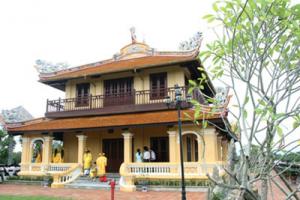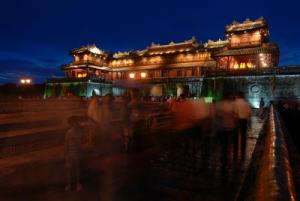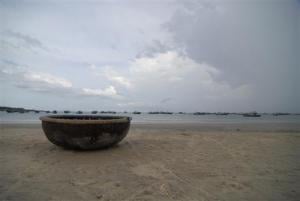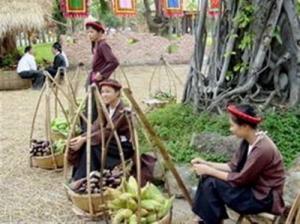Historic Site Turned Into Café, Stirs Strong Criticism

Tu Phuong Vo Su Pavilion is a historically significant structure in the ancient citadel in the central city of ${bigcity_Hue:"Hue"}. Its transformation into a coffee shop has brought up a lot of criticism from the public sector.
Tu Phuong Vo Su Pavilion, which means “house of peace for all,” was built in 1923 under King Khai Dinh. Under the Nguyen Dynasty, the pavilion was a venue for studying and enjoying the air. But through the years, war and natural elements have destroyed the important architectural elements of the structure. The Centre for Preservation of Hue Ancient Relics restored the site which cost VND9.3 billion (US$454,000). After the pavilion was restored though, it was leased for use as a coffee shop, every year for a three-year period at a cost of VND200 million (US$9,760).
This modern transformation destroyed the peaceful atmosphere and historical significance of the structure with people lounging and talking in the area as early as 6am. The first and second floors of the building are now occupied with tables and chairs, erasing any signs of cultural elegance. Experts and tourists alike disagree, even ashamed, of the new face of the pavilion, stating that turning it into a coffee shop has defamed its historical value.
Phan Thuan An, a researcher, pointed out that “the meaning of restoration was to promote historic value, not to rent it out.” He stated a similar case about 20 years ago when a restaurant was allowed to operate inside the pavilion by the Citadel Management Board itself. The once quiet palace turned public structure attracted a lot of noisy and even drunk tourists, forcing the board to close down the diner. An said what happened during that time should have been a lesson learned and not to be repeated again.
In defense, director of the center Phung Phu explained that the concept of the coffee shop was to give visitors a place to rest and have some refreshments after a tiring day of touring. According to him, the center will observe the outcome of this venture and execute the necessary actions in time. In the same manner, Provincial People’s Committee Permanent Vice Chairman Ngo Hoa defended the province’s approval of the transformation of the pavilion into a coffee shop saying “higher quality tourist amenities could preserve the complex.”
According to To Van Dong, head of the administrative office of the Ministry of Culture, Sports and Tourism, the ministry has asked the National Cultural Heritage Department to inspect the shop. But so far, it hasn’t violated any law on businesses operating in the premises of historic sites, so it can’t be closed down. At best, the shop should be managed instead of banned, according to Dong.
In this light, the Ministry of Culture, Sports and Tourism has tasked the National Cultural Heritage Department to study suitable models for businesses in museums and other historical sites.









